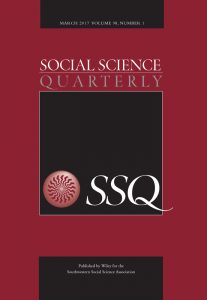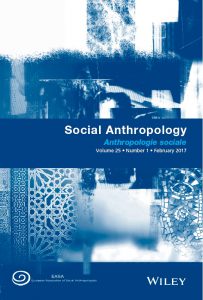Robert Tressell’s Gasometers and the Commodification of the Environment
Last year I reread one of my favourite books, The Ragged Trousered Philanthropists, By Robert Tressell. I first read it a few years ago after one of my undergraduate lecturers, Dr Andy Thorpe at the University of Portsmouth, recommended it. I went back to it last year because it was the 100-year anniversary of its posthumous publication and, though it is an account of working class life at the turn of the 20th century in Mugsborough, an aptly named fictional British town, to me, it is as pertinent today as it ever was. One particular passage stands out to me; that of gasometers: Tressell’s imagined machines that could take the air from the world and charge those who wish to breath it for the privilege.
‘If it were possible to construct huge gasometers and to draw together and compress within them the whole of the atmosphere, it would have been done long ago […] And if that seemingly impossible thing were accomplished tomorrow, you would see thousands of people dying for want of air – or of the money to buy it – even as now thousands are dying for want of the other necessities of life. […] In exactly the same spirit as you now say: “It’s Their Land,” “It’s Their Water,” “It’s Their Coal,” “It’s Their Iron,” so you would say “It’s Their Air,” “These are their gasometers, and what right have the likes of us to expect them to allow us to breathe for nothing?” […] And when you are all dragging out a miserable existence, gasping for breath or dying for want of air, if one of your number suggests smashing a hole in the side of one of the gasometers, you will all fall upon him in the name of law and order, and after doing your best to tear him limb from limb, you’ll drag him, covered with blood, in triumph to the nearest Police Station and deliver him up to “justice” in the hope of being given a few half-pounds of air for your trouble.’
This resonates with me at the present time as it relates to my current research on UN-REDD+, a project that seeks to put a value on ‘ecosystem services’ and create a market system through which carbon, water and biodiversity (and just about anything else that can be quantified and commodified) can be traded. This is not as far from Tressell’s predicted gasometer as one might hope. True, there are no giant machines that suck the atmosphere from the world, locking it up in tanks, and nobody is noticeably dying for want of air (yet). No, the trading of the necessities of life, the control of the resources that we all rely upon, is more complex and far more subtle. It is almost impossible to pinpoint who, exactly, is the caricature capitalist, the ‘air monopolist’, that Tressell describes. But sure enough, they are there, reaping the benefits of the carbon markets and the ‘payments for ecosystem services’ while those most at risk from the impacts of climate change, the most economically vulnerable and culturally marginalised (i.e. people in developing countries, and especially Indigenous Peoples) are paying the bill through the loss of their territory, autonomy, culture and rights.
But this is unsurprising, really. The problem of how ‘nature’ or ‘the environment’ fits into the global capitalist system, and, crucially, how it can be managed, has long been debated. It is a problem because market forces have not only failed to take into account the myriad environmental externalities of capitalism (e.g. deforestation, rapid loss of biodiversity, air and water contamination, and the increasingly evident impacts of climate change), but the market itself has also created a system in which it is just not competitive to be ‘green’. Moreover, it has concentrated the decision making power into the hands of a few powerful people and organisations (particularly major corporations that have themselves been the driving forces behind much of the environmental degradation). People who, at every step along the way toward developing an approach to the world that can sustain life, have blocked ‘progressive’ environmental legislation at all levels of political society (local, national and international) in the name of freedom and economic development.
The ideological pervasiveness of growth, of development, of freedom and individualism has rapidly replaced the rhetoric portrayed by Tressell, whereby the ‘air monopolist’ preaches ‘sermons on the Brotherhood of Man […] dispensing advice on “Christian Duty” in the Sunday magazines; [giving] utterance to numerous more or less moral maxims for the guidance of the young’, but the outcome is the same. Those least advantaged people in society are obliged to work hard and to earn their keep, while lining the pockets of those who wear less ragged trousers. The market itself is treated as analogous to a god, omnipotent, omniscient and omnipresent: a benevolent fact of life. Those who believe in the almighty invisible hand, even those who see its flaws, argue that it should not, or cannot, be questioned: simply that ‘there is no alternative’ (I wrote a short essay about this some years ago, which I will post as a follow up to this blog).
Yet this idea, as seemingly convincing as it is, is little more than a self-replicating myth; the greatest meme of the capitalist epoch. Those who seek to ‘smash a hole’ in the side of the system, to find a way to move society forward in an equitable manner (in which resources and capital are no longer used to the benefit of only a few), or envisage a global society that does not depend upon environmental destruction, are seen as naïve radicals who get in the way of ‘real’ development. They are hippies, bleeding heart liberals or, as the ever-insightful idiot, Jeremy Clarkson, likes to quip, Environmentalists. The economy must come first, and environmental issues (when they are talked about at all) must be understood primarily as an economic concern, valued through cost benefit analyses and measured in Dollars, Pounds and Euros. Those who wish to enter into the international debates of how the global environment should be managed are permitted do so within the ideologically framework of organisations that will only discuss it in these terms.
Thus, we arrive at a time where these ‘services’ that nature provides, what Tressell called the ‘necessities of life’, are increasingly controlled by the people and organisations that have made them so scarce in the first place. The debate about how we interact with the world and how the environment is managed is framed within a rigid discourse, bounded by market (ill)’logic’. The contemporary drive toward a marketisation of nature demonstrates that, in the past century, one thing that has not changed is that for wealth and power to be concentrated, and for the necessities of life to be commodified, someone somewhere must be dispossessed. Someone must be the Ragged Trousered Philanthropist.





1728-4457/asset/PopulationCouncilLogo.jpg?v=1&s=03074651676b98d6b9d0ef1234bd48fe7ff937c3)
1475-6781/asset/JSS.gif?v=1&s=377bb8e0c3d0fcf201f301ded7cf610142072c3e)
1 Response
[…] Robert Tressell’s Gasometers and the Commodification of the Environment […]